From left Dennis Vercher, Rex Ackerman, Don Ritz and Robert Moore
Dallas Voice’s trailblazing journey through LGBTQ history
CAROLINE SAVOIE | Contributing Writer
CaroSavoWrites@gmail.com
Tears brimmed in Robert Moore’s eyes as he talked about how far Dallas Voice has come since the co-founder of the paper “stumbled” into the publishing business in 1984. “I had no idea the impact that Dallas Voice would have on the LGBTQ+ community, other papers and Dallas as a whole,” he said, taking off his glasses to wipe a tear from his cheek. “I couldn’t have ever imagined.”
In 1984, Moore, Don Ritz and William Marberry each invested $250 to start Dallas Voice. Marberry was the publisher; Ritz was the editor, and Moore was the advertising director at the time of the paper’s first 24-page publication on May 11, 1984.
With a background in sales, Moore realized he could help the paper take off. And that it did.
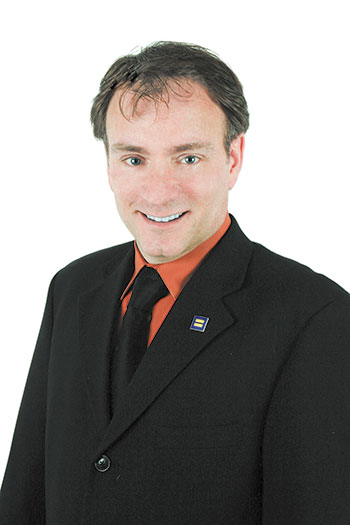 The Critical Era: 1984-1995
The Critical Era: 1984-1995
In its first year on newsstands, the Voice became a member of the Gay Press Association. In its second year, Ritz and Moore bought out Marberry and moved production from Houston to Dallas. Dennis Vercher III started as the paper’s editor, and Ritz and Moore founded the National Gay Newspaper Guild.
In the early ’80s, buzz in the LGBTQ community started building. Dallas was becoming more welcoming, becoming a home for LGBTQ folks. Pride parades were becoming more frequent; more LGBTQ bars were opening in Oak Lawn, and in 1982, the state’s sodomy law was ruled unconstitutional by federal district Judge Jerry Buchmeyer — a ruling that, sadly, was overturned on appeal.
And LGBTQ folks started holding places of leadership in the community.
Robert Emery, a founding board member of the Coalition for Aging LGBT, said that on the other side of that coin of growing acceptance, Dallas’ gay community was “suffocatingly stifled.”
“Police were raiding bars,” he said. “People were being murdered in the neighborhood when they would go from their parked car to a club. If not murdered, people were beaten up frequently.
“The police were not on our side in the early ’80s. You could be fired from your job instantly, not by the proof of being gay or lesbian, but on suspicion,” Emery continued. “Losing your job could lead to losing your family. And, sadly, that sometimes led to losing your life, because that’s how negative the perception was.”
Then came Dallas Voice. Emery said he started reading the paper on day one and never missed an issue.
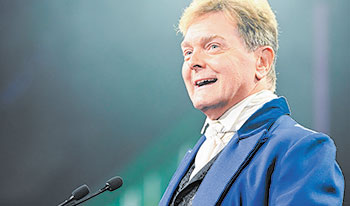
Robert Emery
“I was overwhelmed with gratitude for its existence,” Emery said of the city’s first LGBTQ newspaper. “I was proud of the people who created it. I was in awe of their courage to be public. And I was thrilled to get my hands on every copy and devour every word of what was happening in this secret community.”
In 1988, Moore hired Tammye Nash, then 27, as a reporter. In 1989, Tim Self started working as an ad sales rep, and David Taffet, then 35, appeared in the Voice as a freelance writer.
Emery said the 40-year history of the Voice is “the closest thing we could ever hope to get to a personal diary,” noting that the paper covered both the large events and the large issues, but also the most intimate and small stories of the LGBTQ community in Dallas.
“I go to the newsstand every Friday and pick up a copy of that week’s diary, that week’s journal of what either happened that week or is happening next week. It gives me encouragement, entertains me and inspires me.”
The HIV/AIDS crisis
In the 1980s and ’90s, the AIDS epidemic was running rampant through the United States, and Dallas’ LGBTQ community was hit hard. Deb Elder, a longtime LGBTQ advocate and Voice reader, noted that the disease was referred to first as GRID, or Gay-Related Immune Deficiency syndrome.
The Dallas Voice staff was definitely not spared.
“It’s very hard to watch people die at their desks,” Moore said. “And I did that more than once. I watched people come to work sick and disheartened and knowing what was happening to them but refusing to go yet.”
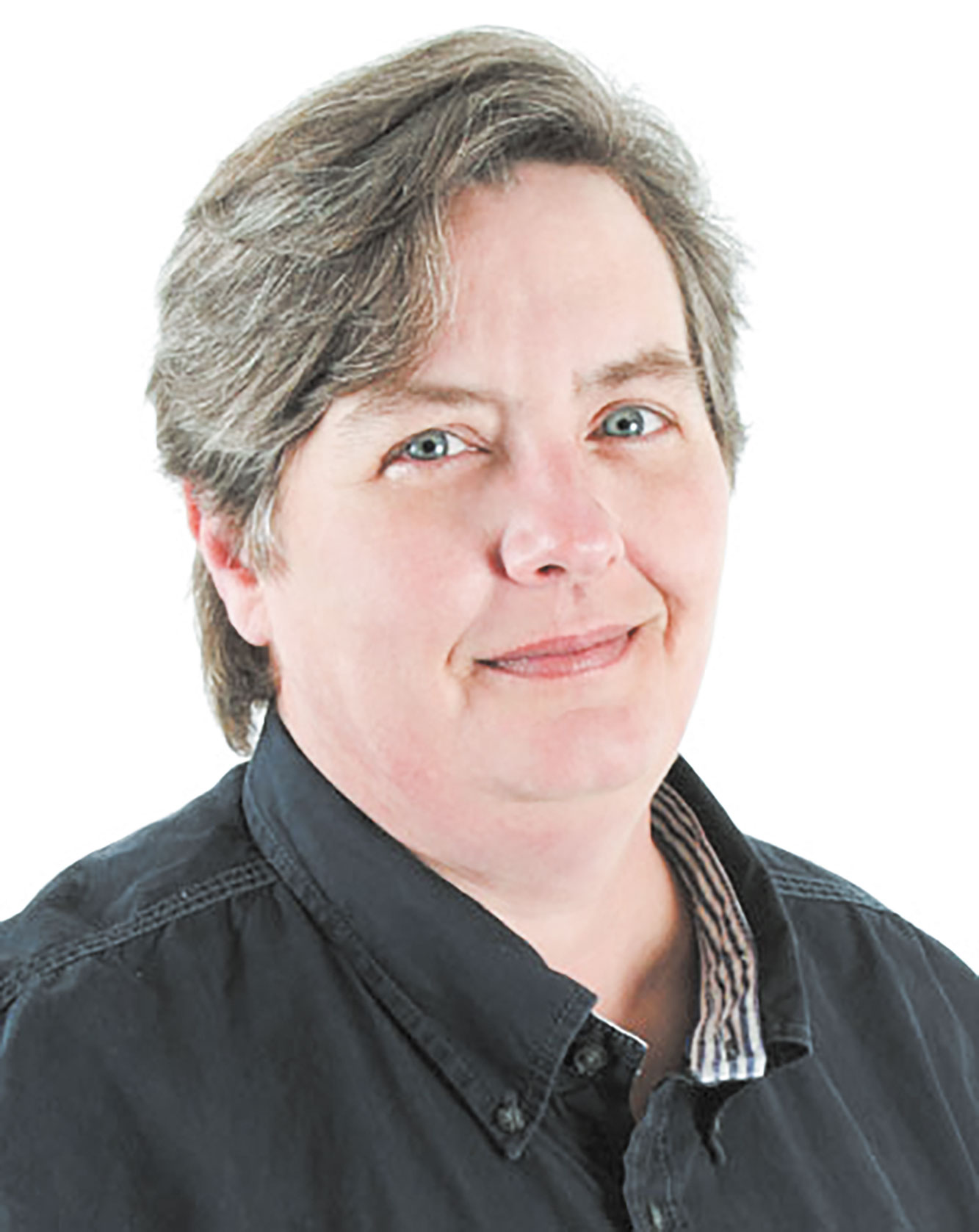
Tammye Nash
In 1993, Self died of AIDS. “To watch him slip away and be powerless, it was awful,” Moore recalled.
In 1995, John Bode, a graphic artist at the Voice, died of AIDS. Several more staff members followed. In fact eight Voice staff members died of AIDS between 1993 and 2006.
Once, Moore said he found Vercher working on a story about a hate crime when he was struggling to work despite the effects of AIDS on his body. He told Vercher to trust his staff to handle the story. Moore remembers the words Vercher said next: “You know, they called him a faggot before they shot him. You know I hate that word. I’m going to do this story.”
Vercher, who was senior editor of the Voice for 20 years, died of AIDS complications and lymphoma in September 2006.
“It was devastating,” Taffet said. “You’re working with this person and all of a sudden they’re gone.”
Taffet recalled cleaning out his Roladex in January of 1990. He said he pulled out name after name, counting the number of people who died of AIDS. When he got to 50, he stopped counting.
William Waybourn, who was one of the most prominent LGBTQ community leaders in Dallas in the ’80s and early ’90s and went on to co-found The LGBTQ Victory Fund, said the Voice documented LGBTQ history and issues extensively, especially during the AIDS crisis. He said when mainstream media sources wouldn’t cover pharmaceutical developments or AIDS fundraisers, the Voice was there.
“I think that the Voice was a megaphone for the LGBTQ community to the larger straight community in Dallas,” he said. “I know the media read the Voice, and they got some of their story ideas from Dallas Voice, whether it was information about a protest or information about new medications or new treatments or lawsuits.”
Melissa Grove, former executive director of Legacy Cares, said when she was counseling AIDS patients in the ’80s, the Voice helped her on her mission.
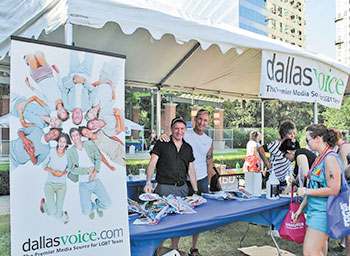
Leo Cusimano and Terry Thompson
“They were always really generous about helping me out,” she said. “The Voice helped with getting the word out that I needed to get out about my AIDS charity as well as the other AIDS charities in town. So they would always cover the fundraisers; they would always cover the events. And they would also look to us as experts and get our angle on what was going on.”
Carol West, a chaplain who worked with AIDS patients and started reading the Voice in 1984, said people who had AIDS needed to know where resources were, and the Voice provided that information. She credits the Voice with bringing the community together during that difficult time, adding that the Voice was integral in her AIDS-related work.
On the cusp of a new decade
In 1989, Taffet started writing a monthly travel column in the Voice because he had an international travel agency and traveled a lot on his own. That column ran monthly for 10 years.
That same year, Taffet said the Dallas Gay and Lesbian Alliance helped Mica England sue the Dallas police department for discrimination after the department refused to hire her because she was a lesbian. England eventually won the case, but she never did become a DPD officer.
Still, Taffet said, “By the time the case was resolved, we had a new police chief, Ben Click, and he held a reception for leaders of minority groups, and I was invited. As a result of that meeting, Click eventually created the LGBTQ liaison position, with Sgt. Lynn Albright named as the first official liaison. That position has been very important to me as a reporter in keeping me informed on police matters. They’ll get background info for me because they trust me.”
In 1992, Moore hired Leo Cusimano, 29, who became an ad rep for the Voice after working as a part-time graphic artist.
That year, the Dallas Morning News featured Ritz and Moore in its business section. Cusimano said calls for advertising started rolling in, and Moore tasked him with taking some of the calls. After seeing how well he handled ad sales, he asked Cusimano to come on as a full-time ad rep alongside Tim Self.
In 1994, the Voice became a member of The Associated Press wire service, meaning the AP could access AP stories and the Voice could distribute its stories to the AP.
In 1995, the city of Dallas enacted a non-discrimination policy protecting LGBTQ employees.
“There aren’t that many gay companies out there now, and there especially weren’t then, so gay people came here and stayed,” Taffet said. “There was something nice about coming to work and never having to worry about ‘Oh, someone might find out.’ Especially in the ’80s and ’90s. My first couple of jobs out of college, it’s not that
I hid being gay, but it wasn’t something you’d talk about at work.”
But at the Voice, he said, that dynamic was flipped on its head.
“We would be shocked to find out someone we hired was straight. There’s this role reversal, and it’s nice to be in that position. It was easier to talk about your partner, what was going on in your life,” he said.
Going digital
From typewriters and Wangs to Macs and PCs, the end of the 1990s saw Dallas Voice debut online. In 1996, DallasVoice.com launched and started providing DFW’s LGBTQ news online. Even though the staff had begun working on desktop computers, Taffet said he kept Vercher’s typewriter for decades, a relic of days passed. He has since donated it to UNT’s LGBTQ Archive.
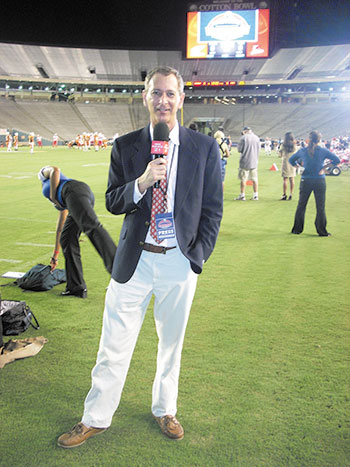
David Taffet
In 1997, Daniel Kusner started working as the Voice’s first life and style editor, and in 1998, as Ritz got progressively more sick with AIDS, he retired from day-to-day operations. He did retain ownership of the company with Moore, who stepped into his new role as publisher. That same year, Rex Ackerman, the Voice’s original gossip queen columnist as well as a charity drag performer known as Heda Quote — who later became part-time circulation manager, died of AIDS.
Three years later, in 2001, after living his dream of moving to New York for a year, Ritz died of AIDS, and Moore became sole owner of the Voice and president of Voice Publishing Company.
During his decades-long tenure as editor, Vercher’s penchant for perfection often kept the editorial team at the office late into the evening on Thursdays, the weekly deadline day. Cusimano recalled how one on of those evenings, Vercher asked Nash, Taffet and Cusimano for that week’s obituaries. But there were none.
“It was the first week in many, many years that Dallas Voice didn’t have any obits from our community, from folks who died of complications from HIV and AIDS,” Cusimano said. “The sky was lifting. It was an emotional time, and we all sat around and cried together. It’s something I’ll always remember.”
In 2001, Nash left the Voice to return to mainstream newspapers, and Terry Thompson, Moore’s then-husband, joined the paper’s staff as office manager. David Webb started reporting for the Voice, as did Arnold Wayne Jones, who joined the staff as a life and style reporter and theater and dining critic.
Jones said the Voice gave him autonomy in his writing, even if then-editor Vercher gave him a run for his money where word choice was involved. “I like to write conversationally, naturally,” Jones said. “I used ‘gonna’ and ‘wanna,’ and Dennis didn’t always like that. But I won my fair share of grammar arguments.”
Jones said over his years at the Voice, he watched more straight people start to read the paper, especially where his own pieces were concerned.
“I wrote for everyone,” he said. “I was writing about gay performers and business owners, but everyone was interested in theater. Everyone wanted to know where to eat. I felt like I brought some crossover appeal, where gay and straight people were all reading the paper.”
In the spring of 2004, the Voice marked its 20th anniversary. Nash dropped by the paper to see the Voice’s new offices and say hello to her former coworkers. During that visit, Moore invited her to return as a reporter, because Vercher was getting sicker. She accepted, and started writing alongside David Webb.
“I was doing more and more of the editor’s job during those years, as Dennis became more ill,” Nash said.
Early in 2006, DVtv, a video component of DallasVoice.com, was added to the site to feature news and entertainment videos from around North Texas. The crew grew from three to five people when local filmmakers Israel Luna and Ryan Fyffe joined, and a rotating cast of on-air talent grew too.
“We embrace every platform we can to uplift and amplify LGBTQ voices,” Cusimano said. “When it comes to technology, those in the LGBTQ community have always been first adopters.”
That same year, the Voice produced its first annual Readers Voice Awards in March. This year in March, the Voice hosted its first in-person RVA ceremony with a party in The Rose Room.
After Vercher’s death in the fall 2006, Nash became senior editor of the Voice. Then Kushner left the paper in the spring of 2009, and Jones was appointed lifestyles editor of the Voice. Taffet was helping write blurbs for the 120-page 25th anniversary issue of the Voice that May, and, he said, Nash offered him a job as a news writer. He accepted.
He said it took him a while to get used to writing for news instead of travel. “I hadn’t written news at the time, and Tammye said she would edit me,” he said. “It was a new style for me, but was I worried about it? No. I had Tammye. We’re really like partners in crime.”
At that point, Nash and Taffet had been working together off and on for 20 years. Now, they’ve been partners in paper for 35 years.
With Taffet’s addition as a full-time reporter, he said Dallas Voice was in its prime. Seventeen employees walked the office halls, and the average paper was 64 pages long.
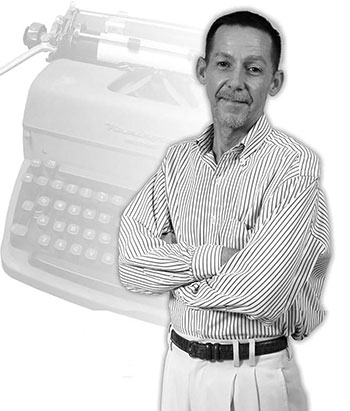
Dennis Vercher
When no one else would …
Emery said the Voice didn’t only help the LGBTQ community but Dallas as a whole. “The Dallas Voice is vitally important to the entirety of Dallas,” he said. In those earlier days, “The Dallas Morning News and Dallas Times Herald would not report on our issues, were not interested in covering anything happening in our community. And because of that, people could comfortably imagine that we didn’t exist.”
He said mainstream media would report on murders and crimes in the gay community, but that’s where coverage stopped.
“But what we had going on at the same time was a glorious history of creating the world’s largest seated LGBTQ fundraising event in the world [Black Tie Dinner], the world’s largest predominantly LGBTQ church [now Cathedral of Hope], and Texas’s largest AIDS fundraiser.
“So thank goodness we had Dallas Voice to share our stories.”
Taffet said that even now, in some cases, if the Voice doesn’t cover a story, no one else will. He said in 2009, TABC and Fort Worth police enacted a raid on a new gay bar in Fort Worth in which a couple of people were injured. He said the Voice gave extensive coverage to it, and the story went national.
“We criticized the police chief, and he told us we gave them fair coverage,” Taffet said. “The head of TABC gave us an exclusive interview, admitting the bar shouldn’t have been raided. So when people say we’re biased, I point them to that story.”
Taffet said every time the Morning News has tried to start an LGBTQ section, it’s the first thing to get cut when budgets are tight.
“It’s not their priority,” he said. “When they do cover the community, they do a good job now, but the benefit here is that every week, you learn about someone in your community, what’s happening and what you can do that week. It’s all from the perspective of someone in your community.”
The Now: 2010-present day
In 2010, the current form of Dallas Voice began to take shape. Kevin Thomas, who still works at the Voice today as art director, joined the art department. In 2012, Chad Mantooth started as an ad sales rep working with Cusimano. In 2013, Moore retired as publisher and sold the company to Thompson and Cusimano, the ad rep-turned publisher.
Four years later, Thompson retired and sold his portion of the company to Cusimano, who is still sole owner and publisher to this day.
“Both Robert and I are publishers who came up through the ranks of marketing and advertising instead of journalism, reporting or writing,” Cusimano said. “So we ran the company differently.”
Cusimano said when he took over the company, he realized Don Ritz set the company up to be sustainable through core principles. He said the company has never had debt, and still doesn’t today.
In 2012, Nash left the Voice to work for the Cleburne Times-Review. Taffet said he suggested that the Voice hire Nash again, and Cusimano took his suggestion. And Nash returned to the Voice as managing editor in June 2014.
“Leo called me while I was at the mechanic shop in Cleburne, getting the AC fixed on my car, and he said, ‘Do you think I could talk you into coming back to work here?’” Nash said. She returned to the Voice once again, and she’s never left.
“Through everything, through it all, it’s always been about the community, and that’s what the Voice does the best, in my opinion,” she said.
She said she and Vercher always valued informing the community on local events and state and national laws. They also wanted the community to be entertained, provided with travel, film, books and profiles.
“What we’re doing at the Voice is putting a face on the people in our community to the rest of the world,” Nash said. “Because that’s the only way we can keep them from coming down here and shootin’ us and robbin’ us and beatin’ us up. They need to know who we are, because when they know who we are, they’re not gonna hate us.
“We’re their children, their brothers and sisters, their cousins, their next-door neighbors, their parents.”
In the 35th anniversary issue of the Voice, Cusimano said he was “very proud of the role Dallas Voice has played in increasing LGBT visibility and in driving changes for equality.”
“Our reporting contributed to Omni Hotels’ decision to offer domestic partner benefits to employees at the Dallas Convention Center Hotel,” he wrote. We also were instrumental in helping DART and Dallas County amend their nondiscrimination policies to include transgender employees. As a result of our coverage, the Dallas Morning News agreed to begin publishing same-sex marriage announcements, and DISD approved an LGBT inclusive anti-bullying policy.”
Cusimano wrote that Dallas Voice played a decisive role in building LGBTQ organizations, strengthening our community and fostering political mobilization.
In 2019, Taffet said the Voice’s coverage of trans woman Muhlaysia Booker’s murder was a turning point for media and police coverage in the trans community. He said people started paying attention and urging police to return to unsolved murders of other trans women, of which there were plenty.
“When police were holding press conferences, they wanted the Dallas Voice there,” Taffet said. “They even held up a press conference for five minutes because I was stuck in traffic. They knew we were needed to get the information out. The police relied on us to make sure the community knew they were serious about solving the case.”
When the COVID-19 pandemic hit in March 2020, Taffet said the droves of people dying around him was all too familiar. “News reports said they’d never seen anything like this before,” he said. “I was sitting there thinking ‘well I kinda have’. It was very comparable to AIDS.
“But with the pandemic, there wasn’t the discrimination there was with AIDS. COVID was an equal opportunity infectious disease.”
Nash said the pandemic changed everything. The number of advertisers turned thin, and the issues got smaller, even as low as 20 pages. But the paper didn’t stop printing, Cusimano said: “We delivered Dallas Voice every week during the pandemic and have never missed a Friday in 40 years.”
Cusimano said he and Taffet worked in the office, but everyone else worked from home. Staff got cut to the bare minimum, with Thomas, Mantooth, Nash and Linda Depriter, who worked delivery, remaining on staff. Even the office got smaller, as Cusimano cut office space in half.
“Since that call from the Morning News [way back in 1992], we’ve always been profitable until COVID,” Cusimano said. “We bounced back the next year after making some hard decisions.”
Jones was let go from the paper in 2020, when in-person events ceased to exist, which Nash said was a tough loss for the paper. In 2021, Rich Lopez returned to the Voice after he left the paper in 2012, and he became a staff writer to cover arts and entertainment. He said shows were starting to return to the stages around that time, but participants had to wear face masks to prevent COVID transmission.
Taffet said the paper got an award for keeping the community informed throughout the pandemic.
“We had to write tighter, because we had smaller issues,” he said. “And we had to talk to people on the phone or on Zoom, which I felt hurt my ability to form relationships with sources. But Zoom did allow us to interview people we couldn’t have before, people from all over the country.”
In 2023, with hundreds of anti-LGBTQ bills up for vote nationwide, the Voice’s coverage became critical once again.
“Legislation this past year has been the worst I’ve ever seen,” Taffet said.
Nash said that politically, it’s the Voice’s job to keep people in the know. She said the Voice is trying its best to keep people up to date on the national and Texas legislatures to ensure that responsible, empathetic people are voted into office.
“The only way that can happen is if people know what’s going on,” she said.
Nash, now 63, said she loves working for community papers, but reporting the news for the LGBTQ community is “heartbreaking” at times: “There’s a lot of joy and kumbaya and meeting so many lovely people, and we feel great about that. But then there’s that Sunday morning when you wake up and find out 49 people have been shot to death in a bar in Florida by some asshole with a semi-automatic rifle,” Nash said. “It really wears you down sometimes.”
At 70 years old, Taffet said people have asked if he plans to retire. “People say that when you retire you get to do what you want to do,” he said. “You know, I’m already doing what I want to do. I’m reporting.”
Cusimano, now 61, said that he feels like publishing Dallas Voice is a step to save democracy: “Trust in national media has eroded to 28 percent, and trust in local media is still pretty high, so foundations feel like they need to funnel money into local media to save democracy,” he said.
“I heard Darren Walker, the president of the Ford Foundation, say that people are leaving the town square, and what’s left are polarizing voices who are getting people elected. The job of local media is to get more people to the town square, to get more people educated, to make better choices at the ballot box.”
Cusimano said today, the Voice reaches thousands of people through several platforms. The website has 262,000 unique visitors per month; the weekly email blast reaches more than 20,000 opt-in subscribers; the social media accounts have 40,000 followers, and the print newspaper is in the hands of 28,000 Texans each week.
“We embrace all of these platforms to uplift and amplify LGBTQ voices,” Cusimano said.
Nash said the work she does is full of passion and gratitude and duty. “Sometimes you feel like there’s not going to be enough good that comes out of it to make it worthwhile, but we just keep going, because we’ve got to. Someone has to,” she said. “Who else is going to do it?”
Still, Cusimano said, “This 40th anniversary isn’t just about us. It’s a reflection of the incredible resilience and courage of the LGBTQ community, whose ongoing fight for equality inspires us every day.”

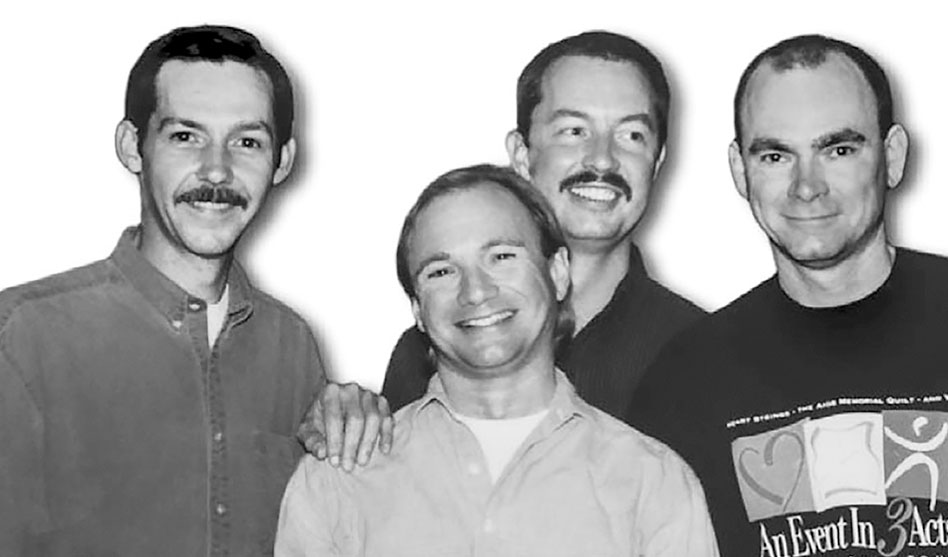
Thank you all for being our “Voice” and reporting on our community. Dallas Voice has been there always and I hope you have another successful 40 years.
Back in the early ’80’s my partner & I were living in Corsicana. We would come to Dallas a couple of times a month & one of our must do tasks was to pick up a copy of the Dallas Voice. We would pore over it, picking up every tidbit of gay life we could. For several years we felt like the Voice was our lifeline to the community. Thank you, Dallas Voice for 40 years of being here.